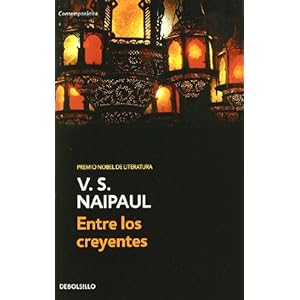In ‘
Beyond Belief’, as in ‘
Among the Believers’,
Naipaul frames the predicament of his converted Muslims as one of cultural self-rejection, a
disregard for their pre-Islamic past in favour of what one Walcott poem calls “borrowed ancestors”.

 His considered view is that faith in Islam is no substitute for the serious mental effort required to build a humane, well-oiled modern society.
His considered view is that faith in Islam is no substitute for the serious mental effort required to build a humane, well-oiled modern society. Political Islam is seen as offering no realistic, empirical solutions to the problems of a developing nation, nothing save, as in the Ayatollah’s Iran, “rage, anarchy”.
Clifford Geertz, writing on Indonesia in 2000, pointed out that the Islamic parties there did not have “much of a program beyond moralism and xenophobia”.
Naipaul’s use of the medical term
neurosis conveys a lot about his view of Islamic faith.
Visiting an Indonesia pesantren (village boarding school) in ‘
Among the Believers’, Naipaul is scathing about the learning method: “...it was Islamisation; it was stupefaction, greater than any that could have come with a Western- style curriculum”.
Adding to the dim view he takes is the perceived hypocrisy of Muslims loathing the West while clutching Harvard and Oxford degrees and seeking aircraft technology...
All the above is excerpted from a fabulous review of
V.S. Naipaul's travel writing from Islamic lands, written in 234next.com by Missang Oyongha (August 14, 2011). Please read the
original review here.I think the Nobel Laureate Naipaul's comments makes the same
point that Wafa Sultan has tried to make, that: to rely on Islamic belief alone, thereby rejecting other forms of inquiry and knowledge is unlikely to be a winning strategy in the end.



